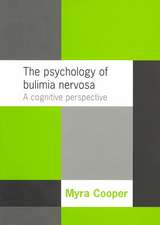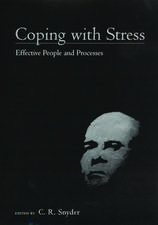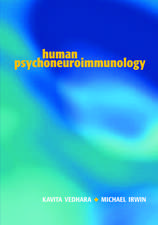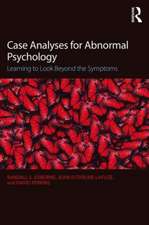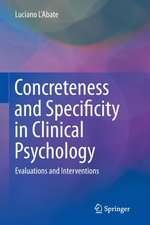User's Guide for the Structured Clinical Interview for Dsm-5 Personality Disorders (Scid-5-Pd)
Autor Lorna Smith Benjaminen Limba Engleză Paperback – 21 dec 2015
The Structured Clinical Interview for DSM-5 Personality Disorders (SCID-5-PD) is a semistructured diagnostic interview for clinicians and researchers to assess the 10 DSM-5 Personality Disorders across Clusters A, B, and C as well as Other Specified Personality Disorder. Designed to build rapport, the SCID-5-PD can be used to make personality disorder diagnoses, either categorically (present or absent) or dimensionally. The SCID-5-PD includes the indispensable User's Guide for the SCID-5-PD, as well as a handy self-report screening questionnaire for patients or subjects, the Structured Clinical Interview for DSM-5(R) Screening Personality Questionnaire (SCID-5-SPQ).
The SCID-5-PD is the updated version of the former Structured Clinical Interview for DSM-IV Axis II Personality Disorders (SCID-II). The SCID-5-PD name reflects the elimination of the multiaxial system in DSM-5. Although the DSM-IV Personality Disorder criteria are unchanged in DSM-5, the SCID-5-PD interview questions have been thoroughly reviewed and revised to optimally capture the construct embodied in the diagnostic criteria. In addition, a dimensional scoring component has been added to the SCID-5-PD.
The basic structure of the SCID-5-PD is similar to the other SCID-5 interviews (such as the Research Version, SCID-5-RV; and the Clinician Version, SCID-5-CV) that cover non--personality DSM-5 disorders. Features include the following: - Questions assessing the DSM-5 criteria for each of the 10 personality disorders: Avoidant Personality Disorder, Dependent Personality Disorder, Obsessive-Compulsive Personality Disorder, Paranoid Personality Disorder, Schizotypal Personality Disorder, Schizoid Personality Disorder, Histrionic Personality Disorder, Narcissistic Personality Disorder, Borderline Personality Disorder, and Antisocial Personality Disorder.- A User's Guide for the SCID-5-PD containing essential guidance for use of the SCID-5-PD, including an appendix of a completed SCID-5-PD and SCID-5-SPQ for a sample patient.- An optional SCID-5-SPQ that serves as a brief, 20-minute self-report screening tool to reduce the time of the SCID-5-PD clinical interview. The SCID-5-SPQ requires an eighth grade or higher reading level (as determined by the Flesch-Kincaid formula). Its 106 questions correspond directly to each first question in the full SCID-5-PD.
The SCID-5-PD can be used in various types of research studies, just as the SCID-II. It has been used to investigate patterns of Personality Disorders co-occurring with other mental disorders or medical conditions; select a group of study subjects with a particular Personality Disorder; investigate the underlying structure of personality pathology; and compare with other assessment methods for Personality Disorders.
The SCID-5-PD will serve as a valuable resource to help clinicians and researchers more accurately diagnose Personality Disorders.
Preț: 506.45 lei
Preț vechi: 533.11 lei
-5% Nou
96.92€ • 105.24$ • 81.41£
Carte disponibilă
Livrare economică 01-15 aprilie
Livrare express 15-21 martie pentru 25.37 lei
Specificații
ISBN-10: 1585624756
Pagini: 106
Dimensiuni: 208 x 272 x 5 mm
Greutate: 0.25 kg
Editura: American Psychiatric Association Publishing



